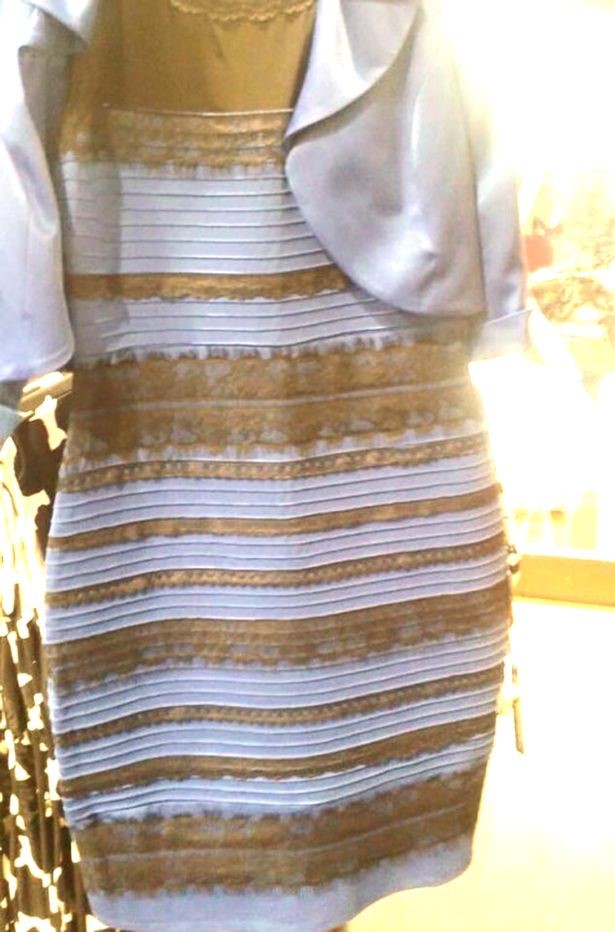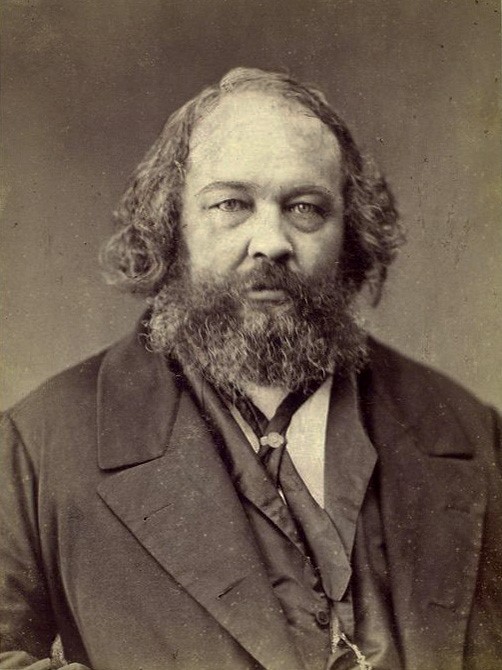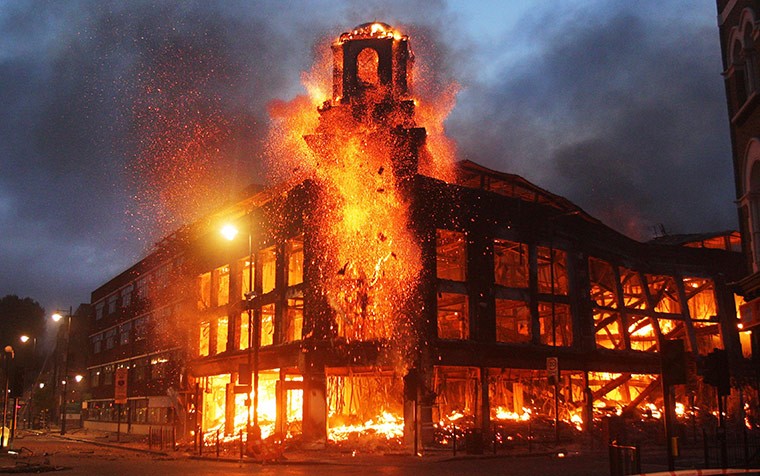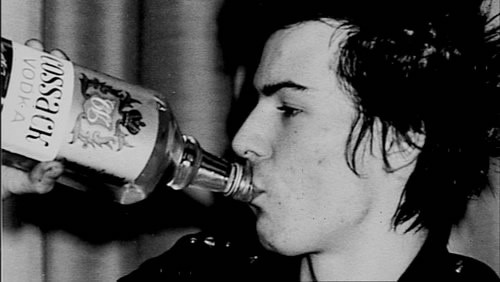Emmeline Wilcox took the ‘Philosophical Britain‘ module at Queen Mary in 2016. In this post she writes about ‘moral’ as a philosophical keyword.
Growing up as a Harry Potter fanatic, I lapped up all the moral messages that littered the books. The importance of empathy, friendship, loyalty, love, and acceptance were set out as qualities that should be fostered. Finding moral lessons in stories is not unfamiliar ground when you’re a child. In fact, as children we are bombarded with moral messages. A children’s TV show, for example, will most likely take you on a journey of moral discovery. Characters make mistakes, and lessons are learned. In this way, the child can reap the moral benefits without the anguish of making mistakes. Teaching moral behaviour in children is essentially teaching a child how to live in our society, and what is expected of them. To my delight, a whole book has been dedicated to child moral development using Harry Potter as a basis. However, this use of the word ‘moral’ in terms of a lesson is just one of the ways we use the word. Exploring other definitions and usages of the word takes us deep into our history.
‘The Potter books in general are a prolonged argument for tolerance, a prolonged plea for an end to bigotry. And I think it’s one of the reasons that some people don’t like the books, but I think that’s it’s a very healthy message to pass on to younger people that you should question authority and you should not assume that the establishment or the press tells you all of the truth.’ – J.K. Rowling.
The word ‘moral’ first appeared in the English language around the mid to late 14th century. It is thought that the word was first used by John Gower to translate the Latin title of St. Gregory the Great’s moral exposition on the Book of Job (Moralia, sive Expositio in Job) for use in his poem, The Lovers’ Confession (circa. 1393). The Latin word moralis (the singular of moralia) literally translated from Latin to ‘pertaining to manners’ – with mos meaning manner, custom, or law. The word ‘moral’ was subsequently used in translating many other classical works. The use of moral as an adjective can similarly be traced back to the late 14th century – first appearing in Chaucer’s The Canterbury Tales with the term ‘moral virtue’ (circa. 1387-95). Crucially, the use of the word as both an adjective and a noun emerged around the same time: Gower used the word as a noun, and Chaucer used the word as an adjective.

“Forthi Gregoire in his Moral / Seith that a man in special” – Gower.
Moral: Human Behaviour
The earliest use of the word as an adjective, merely indicated human behaviour and was unchanged from its Latin meaning. It is this definition that the term ‘moral philosophy’ has sprung from. Moral philosophy and ‘ethics’ are often seen as one in the same and are frequently used interchangeably. Surprisingly, the two words actually share a common evolutionary ancestor: the Latin word moralis was coined by Cicero when translating the ancient Greek word ethikos. Moral philosophy, being concerned with the big question of how we should live our lives, is a topic that has been taken up by many philosophers over the course of history. From Aristotle’s Nicomachean Ethics; Immanuel Kant’s The Groundwork of the Metaphysics of Morals; and G.E. Moore’s Principia Ethica are just a few examples of philosophers who have explored moral philosophy and ethics. Moral philosophers have traditionally been divided into two categories: moral universalists, and moral relativists. Moral universalists believe that there is a moral code which all humans share, and it can be arrived at through rational thought. Moral relativists (and later moral sceptics) denied that these universal moral laws exist, citing that many different cultures had very different moral codes.
In the mid 20th century, the meaning of ‘moral’ which referred to behaviour, was taken up by scientists and transformed into something that could now be tested and measured. With the advent of behavioural psychology in the 1920s, psychologists began to test morals and explore moral development. Psychologists such as Jean Piaget and Lawrence Kohlberg came up with theories of moral development in children. In adults, the famous 1963 Milgram experiment tested the strength of someone’s ‘moral imperative against hurting others’. Milgram’s experiment is certainly a mirror of the time – the study was set up as an attempt to explain how the holocaust could ever have occurred.
![“Stark authority was pitted against the subjects' [participants'] strongest moral imperatives against hurting others, and, with the subjects' [participants'] ears ringing with the screams of the victims, authority won more often than not.”](http://teachingblogs.history.qmul.ac.uk/hst6347/wp-content/uploads/sites/2/2016/02/Milgram-Experiment-300x206.jpg)
“Stark authority was pitted against the subjects’ [participants’] strongest moral imperatives against hurting others, and, with the subjects’ [participants’] ears ringing with the screams of the victims, authority won more often than not.”
Moral: good behaviour or having good principles
In the mid 15th century, the word took on a positive definition – meaning virtuous, or good behaviour and beliefs. We can infer a great deal about a society or person when the term moral is used as a justification for views or behaviour. Most starkly, we can begin to deduce someone’s general political views when he or she states that something is ‘moral’. For example, in 2004(?), Tony Benn stated that ‘there is no moral difference between a stealth bomber and a suicide bomber. Both kill innocent people for political reasons.’ Conversely, and more recently, the exact word, was used by David Cameron to justify an opposing stance. When attempting to justify his position on airstrikes in Syria, Cameron claimed that there was a ‘moral case‘. Even Katie Hopkins, famed for causing outrage by expressing views which oppose generally accepted morals, still likes to think she has a ‘moral compass’. Hopkins claims that her moral compass is only different as it is ‘not to do with religion […], it’s something to do with Britishness.‘. When people talk about what they believe is moral, we can begin to make a good stab at where they are on the political spectrum. When Katie Hopkins associates her morals with nationalism, we can infer that she is a nationalist and is therefore right wing. When Tony Benn associates morality with an anti-war agenda, we can reasonably guess that he is sympathetic to the left. George Lakoff wrote the book Moral Politics: How Liberals and Conservatives Think – ultimately illustrating how the difference in morals is the fundamental factor when it comes to differing political views.
What is perhaps most illuminating, is that no one wants to come across as someone who is not in possession of morals. If you say ‘you have no morals’ it is an insult – an insult which is often aimed at the youth – apparently all those moral lessons in Harry Potter wear of off by adolescence. A world full of these immoral youths is a very frightening place – so much so, that this fear of immorality has been given its own term: moral panic. This term first appeared in Galaxy Magazine in 1877, when it was stated that the financial crisis of 1873 ‘has been followed by a moral panic.’ However, it wasn’t until the mid 1970s onwards that, in the western world, we really have been in a moral panic with the term dramatically increasing during this time. The increase could possibly be attributed to growing crime rates and illegal drug use – with drug use reaching its peak in 1995 when it is was reported that almost half of young people in Britain had tried an illegal drug. This is compared to 1950 when only 5% of young people were reported to have tried illegal drugs. Of course the HIV/AIDS epidemic of the 1980s, nicknamed the ‘gay plague’ created an enormous amount of moral panic around sexuality and promiscuity.

The moral panic of the HIV/AIDS epidemic feeds into the definition that surprised me the most during my research on the word ‘moral’. One of the definitions given to me by dictionary.com, was that ‘moral’ meant ‘Virtuous in sexual matters; chaste’. Out of the many definitions, this was the only time that a dictionary had given me a precise example of moral behaviour as its definition. What seems very illuminating was how it was in sexual matters that the dictionary was telling us how to behave. Why is being chaste seen as the pinnacle of being moral? Why had none of the behaviours that J.K. Rowling had taught me not made it to the definition? Is this definition just a hangover from a pre-1960s age? Luckily a quick search for chaste in the Oxford English Dictionary confirmed for me that a definition for chaste was ‘Morally pure, free from guilt, innocent. Obs.’ – with ‘obs.’ actually meaning obsolete (and not ‘obviously’ as I began to believe, thinking that the OED was giving me attitude through text language). The strong association of morality and sex in western culture can be traced back to the beginnings of Christianity. Even before this, chastity was encouraged as a way of increasing paternal certainty and encourage ‘male paternal investment’. Thus, we can infer that the use of the word ‘moral’ to mean ‘chastity’ was almost inevitably going to happen – dating back thousands of years.
“In Western culture, at least since its Christian formation, there has been a perduring tendency to give too much importance to the morality of sex… ‘morality’ is almost reduced to ‘sexual morality’” – Margaret Farley
‘The Moral of the Story…’
The word moral is delightfully versatile. It is used to justify, to insult, and to scaremonger. The way people use the word can reveal a person’s views about politics, or even their views about sex. It is used in Parliament, in scientific reports, and in philosophical treaties. Yet it is simultaneously used in tabloids – with even the likes of Katie Hopkins appearing to give some thought to its meaning.
Bibliography
Aristotle, Nicomachean Ethics, (London: Penguin Classics, 350 BC/2004)
Benedict, Leo, ‘How the British Fell Out of Love With Drugs’, The Guardian, 24/02/2011, <http://www.theguardian.com/society/2011/feb/24/british-drug-use-falling> [Accessed: 26/02/2016]
Burkart, Gina, A Parents Guide to Harry Potter, (Illinois: InterVarsity Press, 2009)
Cameron, David, quoted in, Andrew Sparrow, ‘Cameron sets out ‘moral case’ for airstrikes against Isis in Syria – Politics live’, The Guardian, 26/11/2015, <http://www.theguardian.com/politics/blog/live/2015/nov/26/cameron-statement-syria-isis-air-strikes-not-a-sign-of-weakness-politics-live> [Accessed: 26/02/2016]
Chaucer, Geoffrey, The Canterbury Tales, (London: Penguin Classics, 1475/2003)
Gower, John, Confessio Amantis, (Charlston: Nabu Press, c. 1399/2012)
Hopkins, Katie, quoted in, Hesham Mashhours, ‘‘Do You Have a Moral Compass?’ – BlewsWire Interviews Katie Hopkins’, BlewsWire, <http://blewswire.com/do-you-have-a-moral-compass-blewswire-interviews-katie-hopkins/> [Accessed: 26/02/2016]
Kant, Immanuel, The Groundwork of the Metaphysics of Morals, 2nd edn, (Cambridge: Cambridge University Press, 1785/2012)
Lakoff, George, Moral Politics: How Liberal and Conservatives Think, (Chicago: University of Chicago Press, 2002)
Moore, G.E., Principia Ethica, (Kent: Dover Publications, 1903/2004)
Price, Michael E., ‘FromDarwin to Eternity: Why Does Morality Focus So Much On Sex?’, Psychology Today, (2013), <https://www.psychologytoday.com/blog/darwin-eternity/201307/why-does-morality-focus-so-much-sex> [Accessed: 26/02/2016]
Thatcher, Margaret, ‘The Moral Foundations of Society’, Speech delivered at Hillsdale College, 11/1994.
Thompson, Gavin, Hawkins, Oliver, Dar, Aliyah, Taylor, Mark, Olympic Britain: Social and Economic Change Since the 1908 and 1948 London Games, (London: House of Commons Publications, 2012)
Westacott, Emrys, ‘Moral Relativism’, Internet Encyclopedia of Philosophy, <http://www.iep.utm.edu/moral-re/> [Accessed: 27/02/2016]

 On February 27th, 2015, there began a worldwide debate about the colour of a dress. A picture of
On February 27th, 2015, there began a worldwide debate about the colour of a dress. A picture of 


